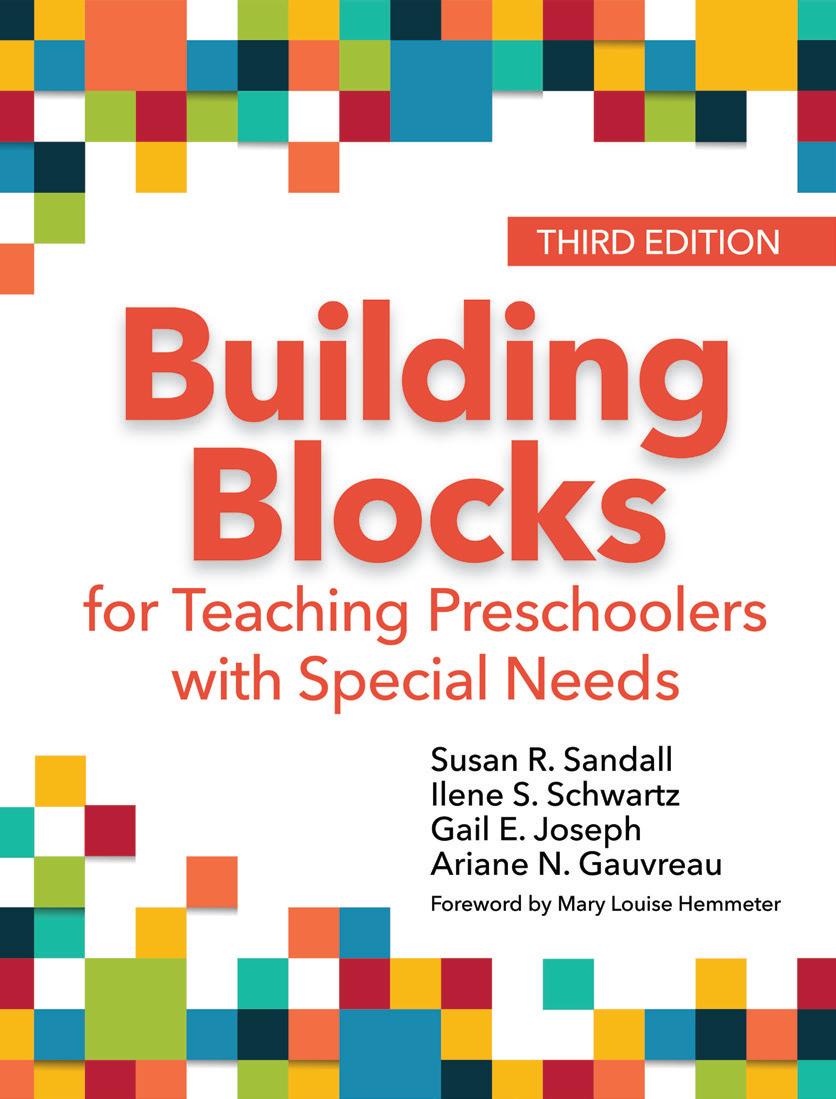
2 minute read
Family Assistance
ORDER EXAM COPY

CONTENTS
I. USING THE BUILDING BLOCKS FRAMEWORK 1 . Introduction 2. Evidence-Based Practice and the Building Blocks Framework 3. Keys to Collaboration 4. Getting Started II. TEACHING STRATEGIES 5. Curriculum Modifications 6. Embedded Learning Opportunities 7. Child-Focused Instructional Strategies III. IMPORTANT TOPICS RELATED TO THE BUILDING BLOCKS FRAMEWORK 8. Becoming More Independent 9. Acquiring and Using Knowledge: Literacy and STEAM 10. Friendships and Social Relationships 11 . Developmentally Appropriate Classroom Behavior 12. Concluding Thoughts

Building Blocks for Teaching Preschoolers with Special Needs Third Edition
By Susan R. Sandall, Ph.D., Ilene S. Schwartz, Ph.D., BCBA-D, Gail E. Joseph, Ph.D., & Ariane N. Gauvreau, Ph.D., BCBA-D (all authors from University of Washington)
Expanded with timely new content and consistent with DEC Recommended Practices, the third edition of this bestselling textbook will fully prepare a new generation of early childhood educators to teach and include every child.
Like the groundbreaking previous editions, this updated Building Blocks guide gives preservice teachers three types of practical, evidence-based inclusion strategies: curriculum modifications, embedded learning opportunities, and child-focused instructional strategies. Educators will learn how to apply these three strategies for the benefit of all children; review the latest research that supports the Building Blocks model; and find ready-to-use tips and guidance on key topics, such as fostering friendships, encouraging independence, and promoting positive behavior. Reproducible forms help with planning and assessment, and seven comprehensive new training modules make it easy to teach the Building Blocks framework in college courses and professional development sessions.
NEW GUIDANCE AND TIPS ON: • Applying UDL principles to engage every student in a diverse classroom • Integrating literacy and STEAM into daily activities and routines • Supporting the executive function skills of all young learners • Applying new and expanded curriculum modifications • Collaborating successfully with other team members to ensure the best child outcomes • Conducting classroom quality assessment INCLUDES 7 TRAINING MODULES! • Using the Building Blocks framework • Conducting ongoing child assessment • Planning for the individual child • Using visuals to support learning • Applying the Building Blocks framework to math and science • Applying the framework to challenging classroom behavior • Extending the framework to infants and toddlers Each module includes a slide deck, presentation notes, learning activities, and a list of other resources and references.





